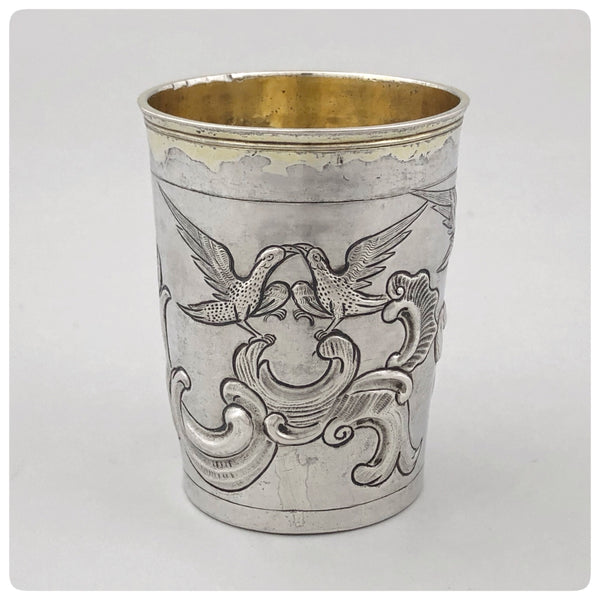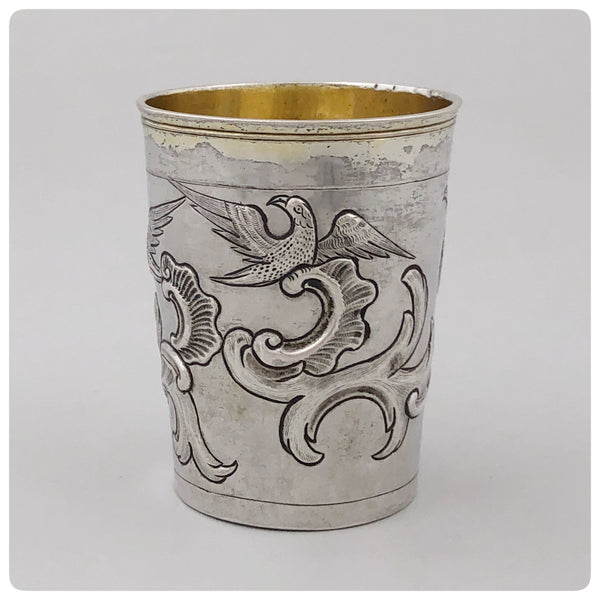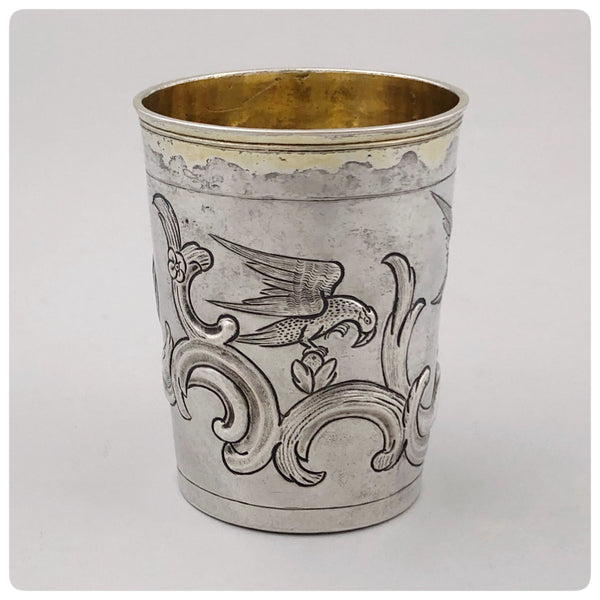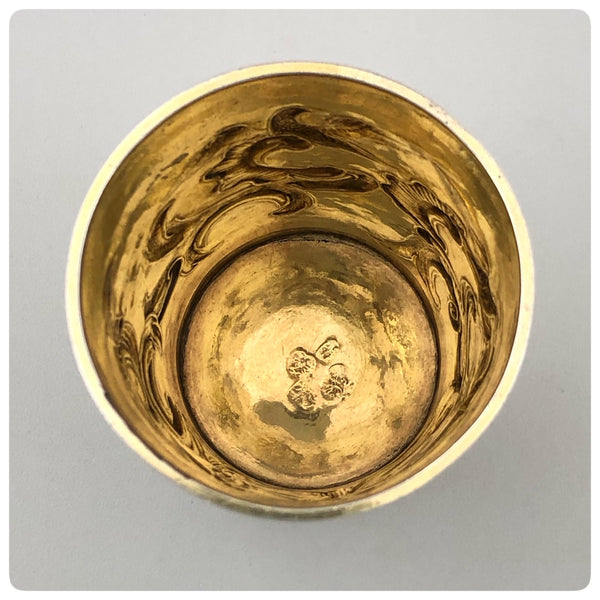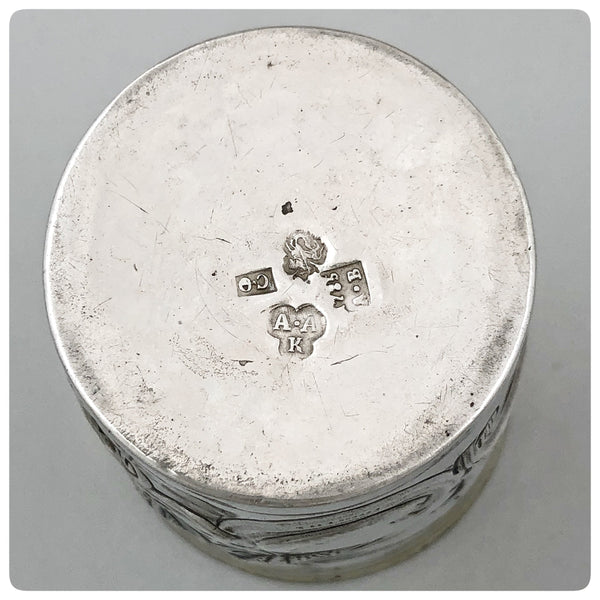Russian Solid Silver and Vermeil Beaker, Alderman Alksei Kosiurev, Moscow, 1785
SOLD
Birds are an important symbol in Russian culture. Ivan III (ruled 1462-1505) made the black double-headed eagle the official emblem for the Russian State, and birds symbolize spring, warmth, light, power and the sun in Russian folklore. Perhaps the four birds featured prominently on this vessel represent four areas in Russian life that Catherine the Great (ruled 1762-1796) advanced through her passionate support of The Enlightenment.
Military - In her attempt to take Crimea and gain access to the Black Sea, Catherine destroyed the Turkish Naval fleet. Her declaration that Constantinople would one day belong to Christians pleased the Church, which held significant influence in the 18th century. Russia's aggressive invasions of Poland in 1772, 1793, and 1795 divided the once important European state between itself, Austria and Prussia.
Politics - Catherine the Great established fifty "gubernii" provinces, divided into ten districts. 300,000 to 400,000 people lived in each province and 20,000 to 30,000 lived in every district. A governor, and network of officials, divided by executive, legislative, and judicial functions, were ideally supposed to run each province. Catherine also encouraged the gentry to play a role in local politics. In 1767, she charged her Legislative Commission to draft a Code of Laws for Russia.
Social - Catherine devoted herself to intellectual advancements and encouraged her court to do the same. She provided her palace staff with a library and reportedly spent an average of 80,000 rubles annually on books. Catherine did manage to implement few policies that benefitted the serfs. In 1767 it was forbidden for foster parents to enserf illegitimate children and in 1781 enserfment of prisoners of war was prohibited and a law passes that saw marriage of a free man to a serf woman emancipate the woman. Catherine is known to have investigated and then bought out landowners who were reported to ill-treat their serfs. Her strong relationship with Voltaire cemented her reputation throughout Europe.
Intellect - Catherine sought intellectual advancements by establishing state-run schools that taught reading, writing and arithmetic, as well as proper behavior proper for citizenship. The schools stressed two principles above all else: the need to be patriotic, and the need to accept innovation. She establishing the first state-financed institution for women's higher education in Europe.
With assayer mark of A. Vikhlyayev.
3 1/4" height, 2 1/2" top diameter. 2.59 troy ounces.





